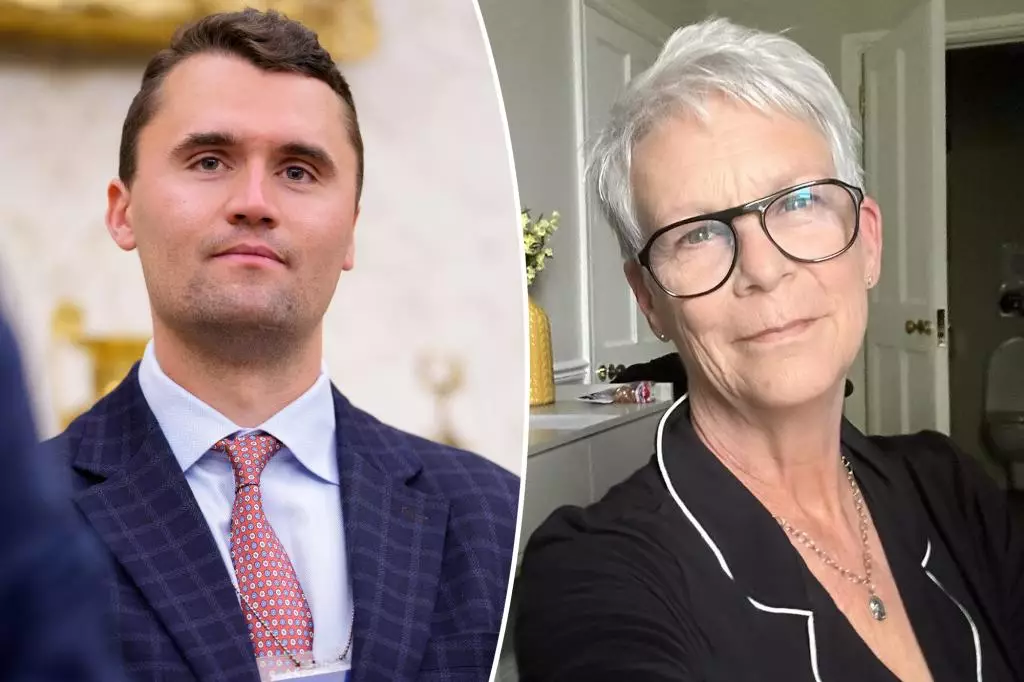In a world increasingly divided by political ideology and ideological echo chambers, Jamie Lee Curtis’s heartfelt reaction to Charlie Kirk’s death offers a profound lesson: true empathy transcends our personal beliefs. Despite her clear disapproval of Kirk’s views, Curtis’s tearful acknowledgment of his humanity underscores a vital truth—every individual, regardless of their political stance or actions, is fundamentally a human being deserving of compassion. This moment invites us to question how often we let our differences overshadow our innate capacity for empathy. It encourages us to consider whether our societal reactions tend to dehumanize or diminish the complex humanity inherent in every person, especially in moments of tragedy. Curtis’s display of emotion exemplifies the power that vulnerability and compassion hold in bridging the chasms of division—reminding us that acknowledging pain in others does not require agreement, but it does demand a recognition of shared humanity.
The Distorted Lens of Media Violence and Its Psychological Toll
Curtis’s critique of society’s bombardment with violent imagery reveals a pressing concern that often goes unnoticed in the discourse surrounding tragedy. Repeated exposure to graphic videos and footage—whether it’s images of 9/11 or violent shootings—serves to desensitize viewers, dulling emotional reactions over time. While the intent may be to inform or evoke outrage, there is an undercurrent of harm that accompanies these images: psychological numbness, trauma, and a collective inability to process violence in a healthy manner. Curtis’s acknowledgment that we may be “inured” to such scenes raises uncomfortable questions about the long-term effects of our media consumption. We must confront whether our societal obsession with the visceral distorts our understanding of real tragedy and whether it hampers our capacity for genuine empathy. This overexposure risks turning pain into spectacle, thus eroding the very empathy required for societal healing. Her insistence on avoiding such footage highlights the importance of protecting our emotional well-being and resisting the impulse to turn tragedy into digital entertainment.
Violence and the Erosion of Our Collective Psyche
The tragic killing of Charlie Kirk illustrates the devastating consequences of unaddressed societal issues—mental health, gun violence, and the failure to foster a culture of compassion. Curtis’s reaction points to a broader societal failure: the tendency to become numb to violence and tragedy, seeing them as mere news updates rather than human suffering. When violence is consumed repeatedly without context, it risks creating a desensitized populace unable to respond with the depth of understanding and compassion. Curtis’s visceral response serves as a plea for a shift in our collective psyche—an awakening that recognizes each individual as more than just a subject of news, but as a person with fears, hopes, and vulnerabilities. The societal conversation must evolve beyond rhetoric and policy into fostering genuine human connection—an essential step in addressing the root causes of violence and trauma.
Challenging the Culture of Spectacle
The media’s obsession with sensationalism often transforms tragedy into spectacle, stripping away the dignity of victims and ignoring the profound human loss behind each event. Curtis’s commentary urges us to reconsider our relationship with tragedy—are we consuming it in a way that numbs us, or are we allowing it to cultivate compassion? The eagerness to broadcast or replay violent scenes diminishes the individual stories and instead feeds into a cycle of despair and apathy. There’s an urgent need to reframe how society engages with catastrophic events, emphasizing respect, reflection, and empathetic understanding rather than spectacle. Curtis’s refusal to re-watch the footage underscores a desire for emotional preservation and an acknowledgment that some images are too damaging to witness repeatedly. This stance calls for more thoughtful media practices and a societal shift toward honoring human dignity in moments of crisis.
Moving Beyond Division Toward Humanity
While political disagreements are inevitable, Curtis’s emotional response reminds us of a higher calling—seeing beyond labels and ideologies to recognize the inherent worth of every person. Her vulnerability is a testament to the importance of humility, compassion, and the acknowledgment that tragedy does not discriminate based on belief systems. It’s a challenge to all of us: are we willing to set aside our prejudices and see the suffering behind the headlines? Are we prepared to practice empathy, even when we vehemently disagree? Curtis’s act of mourning, devoid of partisanship, serves as a wake-up call—urging us to cultivate a culture where humanity prevails over division. Ultimately, embracing shared vulnerability might be the most powerful antidote to our fractured society and the key to fostering a more compassionate future.

